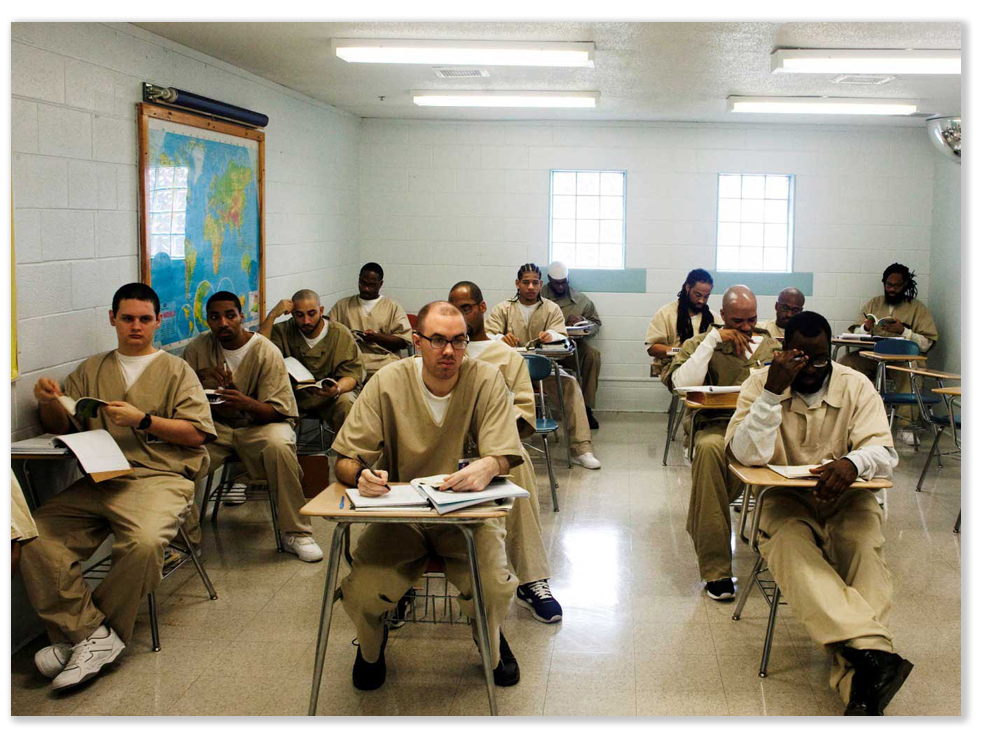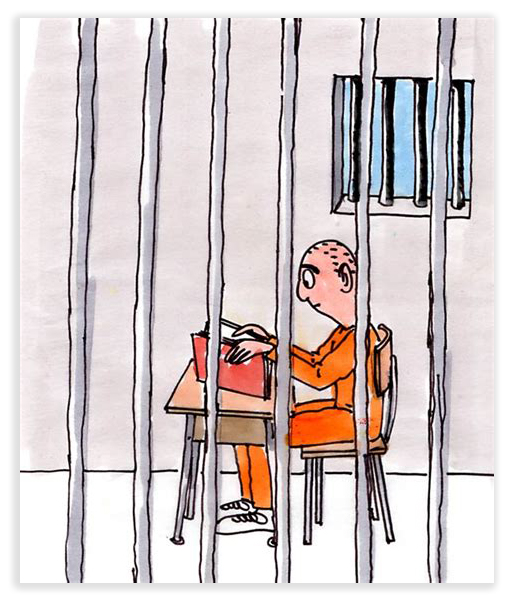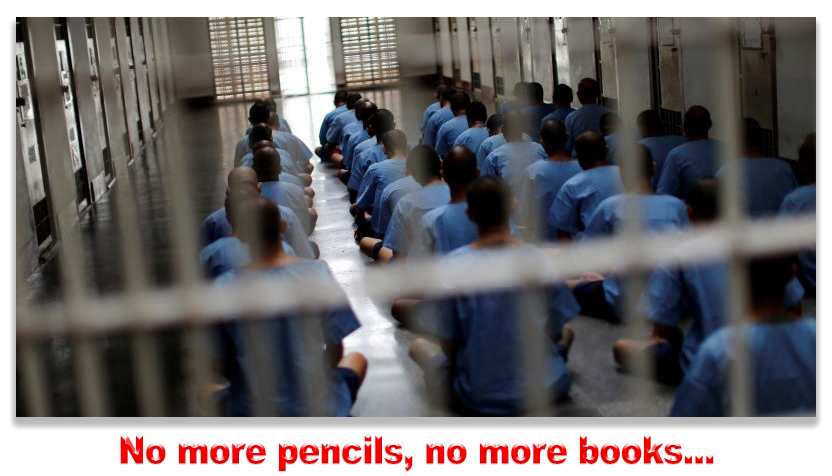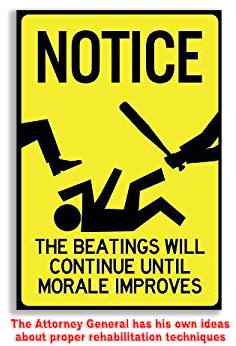We post news and comment on federal criminal justice issues, focused primarily on trial and post-conviction matters, legislative initiatives, and sentencing issues.

BOP WOWS WITH FINAL EARNED TIME CREDIT RULES
 My grandfather always would say, “Christmas comes but once a year, and when it comes, it brings good cheer…”
My grandfather always would say, “Christmas comes but once a year, and when it comes, it brings good cheer…”
Grandpa was never a federal inmate.
In what can only be classified as a stunning turnaround, the Federal Bureau of Prisons yesterday announced its final rules for granting federal time credits (“FTCs”) to inmates who successfully complete specified programs designed to reduce recidivism or engage in what the statute calls “productive activities.”
The First Step Act enacted the FTC program. The notion was that a scoring system – should classify inmates as to the risk that they would be recidivists – we now know it as the PATTERN score – and their programming needs to reduce that risk should be assessed. The BOP would then tell the inmate which programs he or she should complete to address those needs (for example, a course in anger management, apprenticeship training, or substance abuse treatment). Ideally, inmates who complete such EBRR programs will be less likely to commit new crimes after release.
To encourage inmate participation, the prisoners collect ten days of FTC credit for every month in which they participate in such “evidence-based recidivism reduction” – or “EBRR” – programs. If they are considered “low” or “minimum” recidivism risks, they may get an extra five FTC days a month.
The FTC credits may be used to shorten an inmate’s sentence by up to 12 months. If an inmate earns more than 12 months of FTC credits, the extras can be used to earn more halfway house or home confinement.
 But as with everything, the devil’s in the details. First Step provides that “a prisoner shall earn ten days of time credits for every 30 days of successful participation in evidence-based recidivism reduction programming or productive activities.” But precisely what is a “day?”
But as with everything, the devil’s in the details. First Step provides that “a prisoner shall earn ten days of time credits for every 30 days of successful participation in evidence-based recidivism reduction programming or productive activities.” But precisely what is a “day?”
In its proposed rule, the BOP proposed that a “day” was eight hours long, meaning that an inmate would have to log eight hours of EBRR instruction to earn one day of programming credit. That means that 30 days of successful EBRR participation would require 240 hours. The proposal was Draconian.
The BOP’s position was even worse than that. It proposed that inmates could only start to earn FTC credits after January 15, 2020, or – horror of horrors – January 15, 2022 (yes, that’s tomorrow, for you calendar-challenged people). The number of programs considered to be EBRR-worthy was limited, and the long list of convictions that excluded inmates from participation unfairly limited the number of people who could participate.
The BOP’s deadline for full implementation of the FTC is upon us. Yesterday, I complained that the whole furball was ripe for endless litigation and that the BOP had not adopted the final rules, oppressive as they might be.
 I am impressed at the extent of my influence. Within an hour of posting my blog, the Dept of Justice announced that the final rules had been adopted. And what a set of rules they are! I should write a blog demanding that each inmate get TWO cheeseburgers at lunch on Hamburger Day (which is Wednesday, for those of you who haven’t been locked up).
I am impressed at the extent of my influence. Within an hour of posting my blog, the Dept of Justice announced that the final rules had been adopted. And what a set of rules they are! I should write a blog demanding that each inmate get TWO cheeseburgers at lunch on Hamburger Day (which is Wednesday, for those of you who haven’t been locked up).
• The terrible 8-hour day standard has been jettisoned. Now, any day an inmate spends enrolled in an EBRR or productive activity is an FTC day. This means that if an inmate works at an orderly job for a couple of hours, works out for a few hours, watches some TV, goes to the chow hall, and spends an hour in an EBRR anger management class, he or she will be credited with one day of FTC credit.
• Inmates will receive credit for any EBRR program completed after December 21, 2018, the day the FSA was signed by President Trump. This is a windfall. The BOP had not even applied the PATTERN score to inmates and assessed needs until January 2020. After that date, FTC credit is only assigned if an inmate completes an EBRR course to which he or she has been assigned. But for any courses completed before the 2020 needs assessment, the BOP will assume a need. So an inmate who had been a banker with an MBA from Harvard took the “Money Smart” program in 2019 for something to do? She gets FTC credit.
• The BOP has taken to heart complaints that the EBRR programs and (especially) the productive activities were too limited. It has promised that “new funding allotments will enhance the Bureau’s course offerings, largely by permitting it to increase capacity through hiring additional staff, and will also serve to bolster the Bureau’s resources, thereby improving its ability to carry out the FSA Time Credits program.” Participation in RDAP, working at UNICOR, and taking correspondence college courses will earn FTC credit for inmates. However, the BOP has not suggested that it will remove the cap on how many FTC credits can be earned. Right now, 15 weeks in UNICOR earns an inmate 500 hours of FTC credit. So does 15 years.
For that matter, because the prior caps – all of which were expressed in terms of “hours,” a metric without any value now that the 8-hours-is-a-day standard has been abandoned – will probably have to be redone.
• The BOP will award FTC credits for successful months of participation, not only for successful completion of the EBRR courses.
• FTC credits will be available to inmates in halfway houses and home confinement (although the BOP acknowledges some difficulty in delivering such programs in halfway house or home confinement environments).
 Right now, only about 41% of BOP inmates (65,000) are eligible to earn FTC credits. There is little the BOP can do about that because the limitations were written into the First Step Act by Congress. However, the BOP does have some latitude in defining prior convictions as “violent,” and it has promised to “ensure that its facilities receive updated information as to which federal and state offenses qualify or are the subject of litigation and that inmate records are updated to ensure maximum participation in credit-earning EBRRs.”
Right now, only about 41% of BOP inmates (65,000) are eligible to earn FTC credits. There is little the BOP can do about that because the limitations were written into the First Step Act by Congress. However, the BOP does have some latitude in defining prior convictions as “violent,” and it has promised to “ensure that its facilities receive updated information as to which federal and state offenses qualify or are the subject of litigation and that inmate records are updated to ensure maximum participation in credit-earning EBRRs.”
The BOP has promised to immediately apply FTCs to people closest to release. I’ve heard that before. But last night, I called an inmate in a halfway house whose release date was in May to tell him about the new rules. Not more than an hour later, he called me back to tell me he had just been called into the office to sign immediate-release papers. He goes home today.
There will be many nuances to discuss in the coming weeks, but for now, the DOJ’s prediction that releases “are expected to begin this week… and that ‘thousands’ of inmates are being affected,” as the Associated Press put it, is not far off.
A late Christmas gift, but I expected new socks. Instead, we got that pony we’d always wanted.
Associated Press, Thousands of federal inmates to be released under 2018 law (January 13, 2022)
Dept of Justice, Justice Department Announces New Rule Implementing Federal Time Credits Program Established by the First Step Act (January 13, 2022)
BOP, Final Rules for Federal Time Credits Program (January 13, 2022)
BOP, First Step Act Approved Programs Guide (July 2021)
– Thomas L. Root









